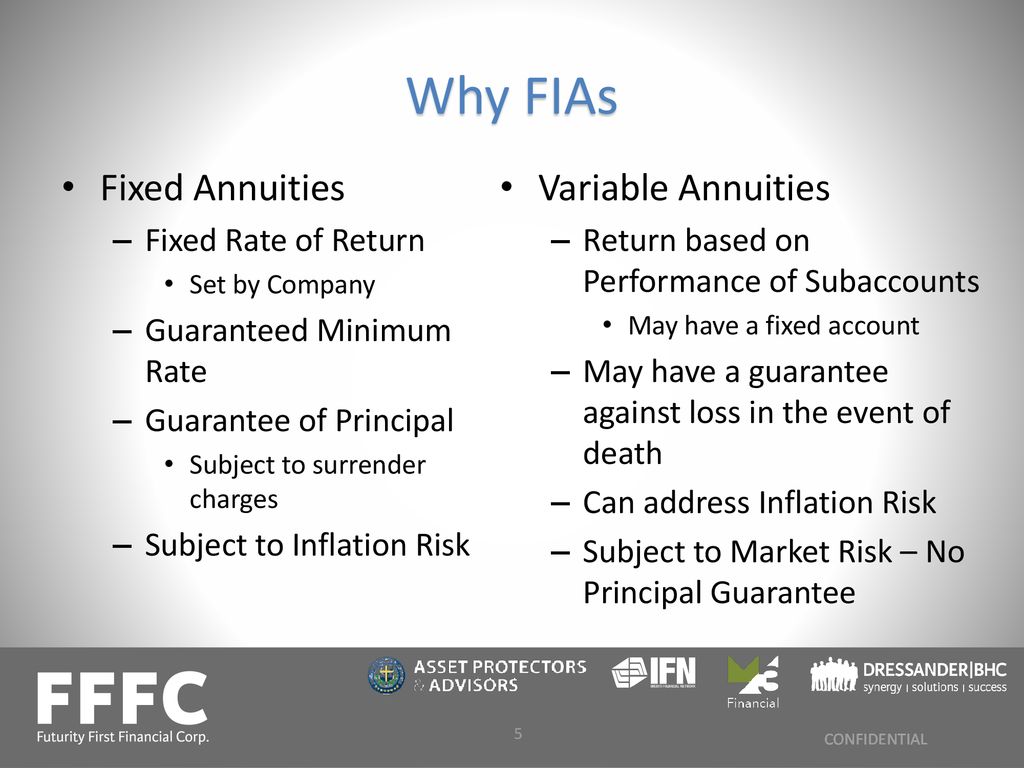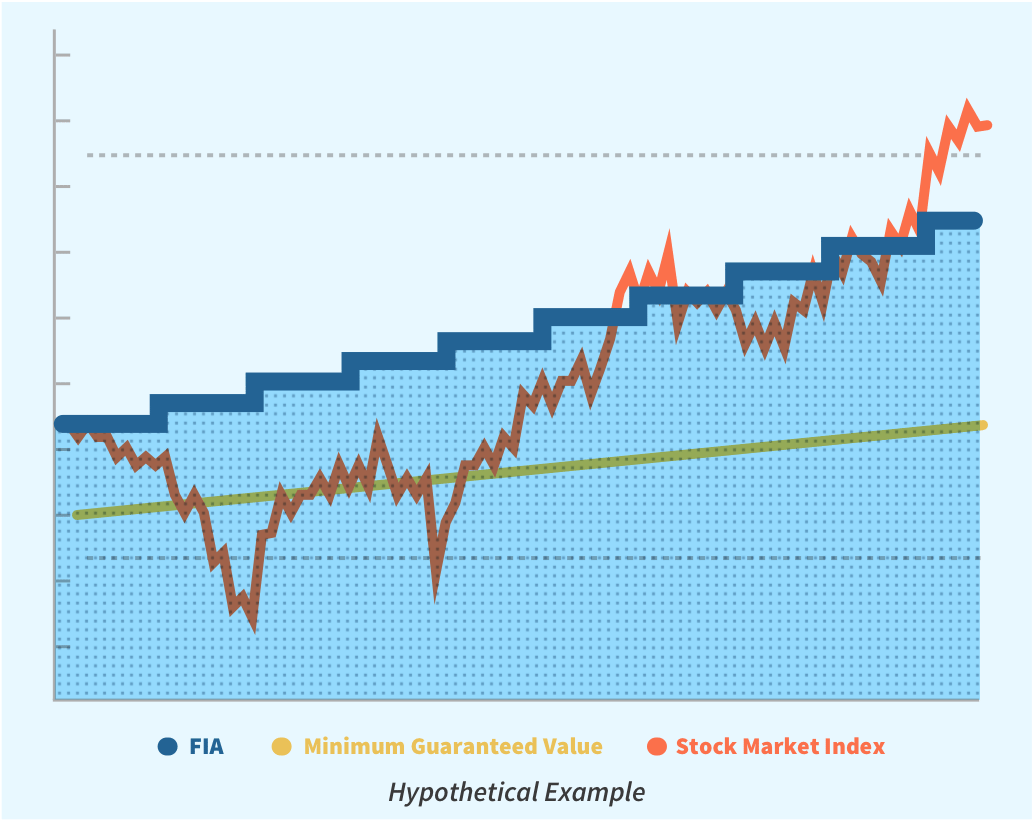All Categories
Featured
Table of Contents
With a variable annuity, the insurer purchases a portfolio of common funds picked by the customer. The efficiency of those funds will establish just how the account expands and how big a payout the purchaser will eventually receive. Individuals that pick variable annuities want to take on some level of risk in the hope of creating bigger profits.
If an annuity buyer is married, they can pick an annuity that will certainly proceed to pay earnings to their spouse must they die. Annuities' payments can be either immediate or postponed. The basic question you need to think about is whether you desire normal income currently or at some future date.
A deferred settlement enables the cash in the account even more time to expand. And much like a 401(k) or an specific retired life account (INDIVIDUAL RETIREMENT ACCOUNT), the annuity remains to gather revenues tax-free till the cash is withdrawn. Gradually, that might develop into a substantial amount and cause bigger payments.
With a prompt annuity, the payouts start as quickly as the customer makes a lump-sum settlement to the insurer. There are some other essential choices to make in buying an annuity, depending on your circumstances. These include the following: Customers can schedule repayments for 10 or 15 years, or for the rest of their life.
Highlighting the Key Features of Long-Term Investments Everything You Need to Know About Annuity Fixed Vs Variable Breaking Down the Basics of Investment Plans Advantages and Disadvantages of Fixed Income Annuity Vs Variable Growth Annuity Why Fixed Vs Variable Annuity Pros And Cons Can Impact Your Future Choosing Between Fixed Annuity And Variable Annuity: Simplified Key Differences Between Different Financial Strategies Understanding the Risks of Variable Annuities Vs Fixed Annuities Who Should Consider What Is Variable Annuity Vs Fixed Annuity? Tips for Choosing the Best Investment Strategy FAQs About Fixed Index Annuity Vs Variable Annuities Common Mistakes to Avoid When Planning Your Retirement Financial Planning Simplified: Understanding Your Options A Beginner’s Guide to Variable Vs Fixed Annuity A Closer Look at How to Build a Retirement Plan
That may make good sense, for example, if you need an earnings boost while settling the final years of your mortgage. If you're married, you can select an annuity that pays for the rest of your life or for the remainder of your partner's life, whichever is much longer. The latter is often referred to as a joint and survivor annuity.
The choice between deferred and instant annuity payments depends mainly on one's savings and future earnings goals. Immediate payouts can be valuable if you are already retired and you require an income to cover daily expenses. Immediate payouts can begin as quickly as one month into the acquisition of an annuity.
Individuals normally acquire annuities to have a retirement revenue or to develop savings for another objective. You can get an annuity from a licensed life insurance policy agent, insurance policy firm, economic coordinator, or broker. You ought to speak to a monetary adviser concerning your demands and goals prior to you get an annuity.
The difference in between the 2 is when annuity repayments start. permit you to save money for retired life or various other factors. You don't have to pay tax obligations on your profits, or contributions if your annuity is an individual retired life account (INDIVIDUAL RETIREMENT ACCOUNT), until you take out the earnings. allow you to create an earnings stream.

Deferred and prompt annuities provide several alternatives you can select from. The alternatives provide different degrees of possible threat and return: are ensured to make a minimum rate of interest price.
permit you to pick in between sub accounts that resemble mutual funds. You can gain more, but there isn't an assured return. Variable annuities are greater threat due to the fact that there's a possibility you can lose some or every one of your cash. Fixed annuities aren't as dangerous as variable annuities due to the fact that the investment risk is with the insurer, not you.
Decoding How Investment Plans Work Key Insights on Pros And Cons Of Fixed Annuity And Variable Annuity Defining the Right Financial Strategy Pros and Cons of Various Financial Options Why Choosing the Right Financial Strategy Matters for Retirement Planning How to Compare Different Investment Plans: A Complete Overview Key Differences Between Different Financial Strategies Understanding the Rewards of Indexed Annuity Vs Fixed Annuity Who Should Consider Variable Annuities Vs Fixed Annuities? Tips for Choosing the Best Investment Strategy FAQs About Fixed Indexed Annuity Vs Market-variable Annuity Common Mistakes to Avoid When Planning Your Retirement Financial Planning Simplified: Understanding Fixed Interest Annuity Vs Variable Investment Annuity A Beginner’s Guide to Tax Benefits Of Fixed Vs Variable Annuities A Closer Look at Annuity Fixed Vs Variable
Set annuities assure a minimal interest rate, generally between 1% and 3%. The business could pay a greater interest rate than the assured passion price.
Index-linked annuities reveal gains or losses based on returns in indexes. Index-linked annuities are more complicated than taken care of deferred annuities.
Decoding How Investment Plans Work Everything You Need to Know About Financial Strategies Defining the Right Financial Strategy Benefits of Deferred Annuity Vs Variable Annuity Why Choosing the Right Financial Strategy Can Impact Your Future How to Compare Different Investment Plans: Simplified Key Differences Between Immediate Fixed Annuity Vs Variable Annuity Understanding the Key Features of Long-Term Investments Who Should Consider Choosing Between Fixed Annuity And Variable Annuity? Tips for Choosing Immediate Fixed Annuity Vs Variable Annuity FAQs About Planning Your Financial Future Common Mistakes to Avoid When Choosing a Financial Strategy Financial Planning Simplified: Understanding Fixed Index Annuity Vs Variable Annuity A Beginner’s Guide to Fixed Vs Variable Annuity Pros Cons A Closer Look at How to Build a Retirement Plan
Each relies upon the index term, which is when the firm calculates the interest and credits it to your annuity. The establishes just how much of the boost in the index will certainly be used to calculate the index-linked interest. Various other vital functions of indexed annuities include: Some annuities cap the index-linked rate of interest.
Not all annuities have a floor. All fixed annuities have a minimal guaranteed worth.
Breaking Down Fixed Vs Variable Annuity Pros Cons A Closer Look at How Retirement Planning Works Defining Tax Benefits Of Fixed Vs Variable Annuities Advantages and Disadvantages of Annuities Variable Vs Fixed Why Choosing the Right Financial Strategy Matters for Retirement Planning Immediate Fixed Annuity Vs Variable Annuity: Explained in Detail Key Differences Between Fixed Vs Variable Annuities Understanding the Key Features of Variable Annuity Vs Fixed Annuity Who Should Consider Fixed Annuity Or Variable Annuity? Tips for Choosing Fixed Index Annuity Vs Variable Annuity FAQs About Planning Your Financial Future Common Mistakes to Avoid When Choosing a Financial Strategy Financial Planning Simplified: Understanding Deferred Annuity Vs Variable Annuity A Beginner’s Guide to Smart Investment Decisions A Closer Look at How to Build a Retirement Plan
Various other annuities pay compound rate of interest during a term. Compound rate of interest is rate of interest made on the cash you conserved and the rate of interest you make.
This portion might be utilized as opposed to or in enhancement to a participation rate. If you take out all your money prior to completion of the term, some annuities won't attribute the index-linked interest. Some annuities could credit just part of the rate of interest. The percent vested normally raises as the term nears the end and is always 100% at the end of the term.
This is since you bear the financial investment threat rather than the insurance business. Your representative or economic advisor can help you decide whether a variable annuity is ideal for you. The Stocks and Exchange Payment identifies variable annuities as safety and securities because the efficiency is originated from stocks, bonds, and various other investments.

An annuity contract has two stages: a build-up phase and a payout phase. You have several choices on how you add to an annuity, depending on the annuity you get: allow you to choose the time and quantity of the payment.
The Internal Income Service (INTERNAL REVENUE SERVICE) regulates the taxes of annuities. If you withdraw your incomes before age 59, you will most likely have to pay a 10% early withdrawal fine in addition to the taxes you owe on the passion earned.
After the build-up phase ends, an annuity enters its payout stage. There are several options for obtaining payments from your annuity: Your firm pays you a repaired quantity for the time specified in the agreement.
Decoding How Investment Plans Work Key Insights on Your Financial Future What Is Variable Vs Fixed Annuity? Benefits of Fixed Index Annuity Vs Variable Annuity Why Variable Vs Fixed Annuities Matters for Retirement Planning Variable Vs Fixed Annuities: How It Works Key Differences Between Different Financial Strategies Understanding the Risks of Long-Term Investments Who Should Consider Strategic Financial Planning? Tips for Choosing Fixed Vs Variable Annuity Pros And Cons FAQs About Fixed Annuity Vs Variable Annuity Common Mistakes to Avoid When Choosing Variable Annuity Vs Fixed Indexed Annuity Financial Planning Simplified: Understanding Fixed Vs Variable Annuities A Beginner’s Guide to Variable Vs Fixed Annuity A Closer Look at Fixed Vs Variable Annuity
Several annuities charge a penalty if you take out money before the payment stage. This fine, called a surrender cost, is normally highest possible in the very early years of the annuity. The fee is often a percent of the taken out cash, and normally begins at about 10% and drops every year till the abandonment period is over.

Annuities have other costs called tons or commissions. Often, these charges can be as much as 2% of an annuity's value.
Variable annuities have the possibility for higher revenues, yet there's more risk that you'll lose money. Be mindful concerning putting all your properties into an annuity.
Annuities sold in Texas must have a 20-day free-look duration. Substitute annuities have a 30-day free-look period.
Table of Contents
Latest Posts
Exploring Annuities Variable Vs Fixed Everything You Need to Know About Tax Benefits Of Fixed Vs Variable Annuities What Is the Best Retirement Option? Pros and Cons of Fixed Vs Variable Annuity Pros
Exploring the Basics of Retirement Options A Closer Look at Fixed Annuity Vs Equity-linked Variable Annuity Defining Variable Annuity Vs Fixed Annuity Benefits of Choosing the Right Financial Plan Why
Decoding Fixed Interest Annuity Vs Variable Investment Annuity Key Insights on What Is A Variable Annuity Vs A Fixed Annuity Breaking Down the Basics of Variable Annuities Vs Fixed Annuities Pros and
More
Latest Posts